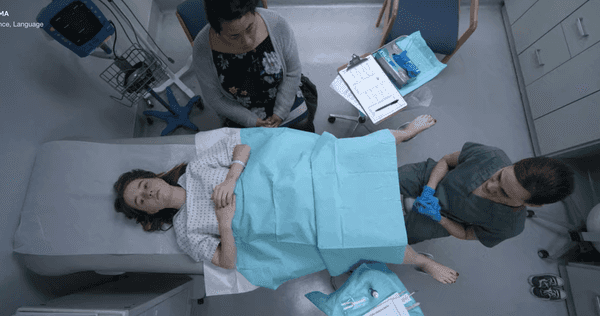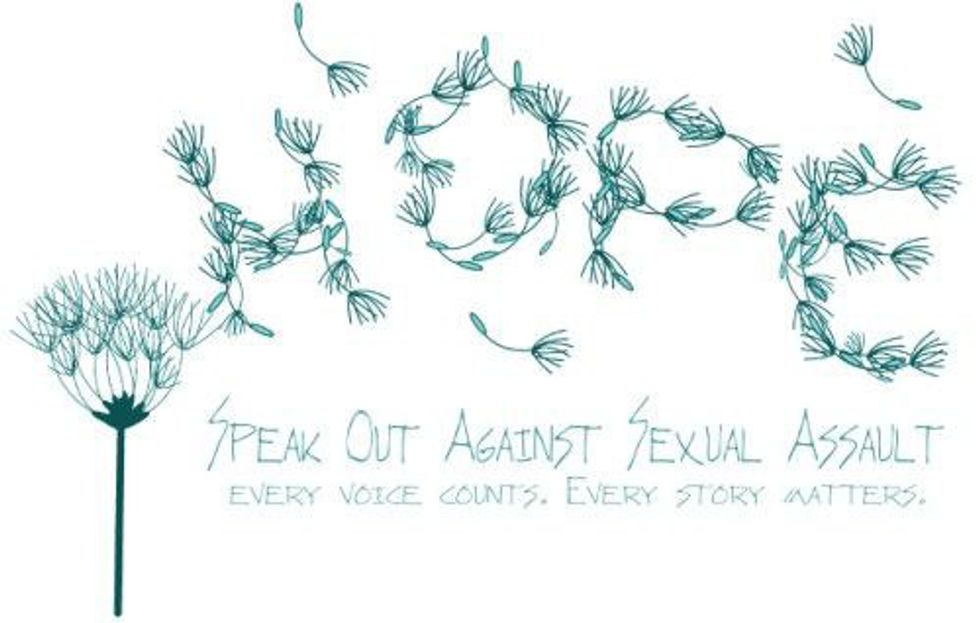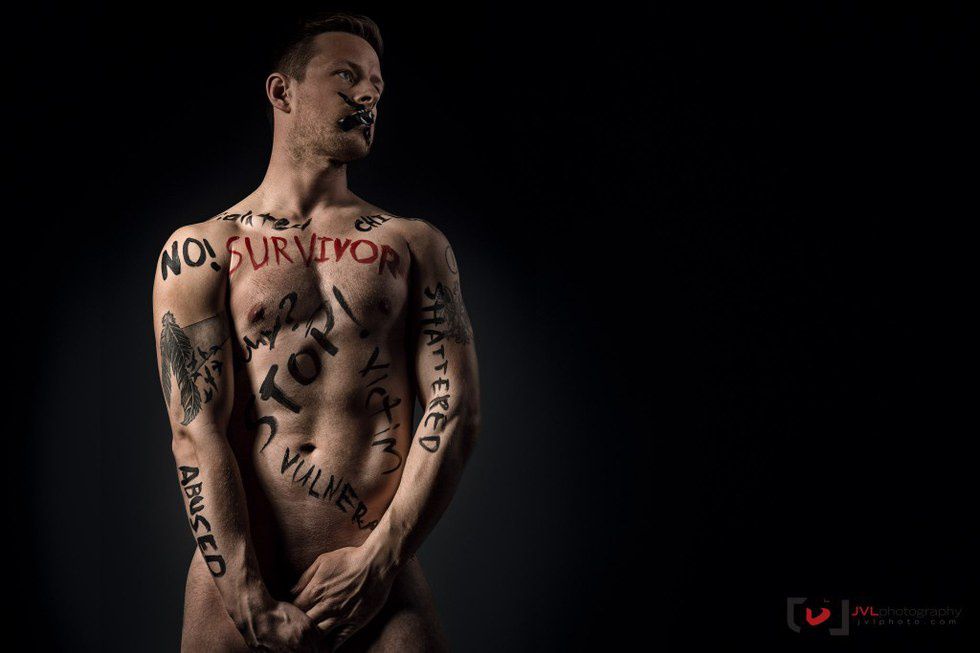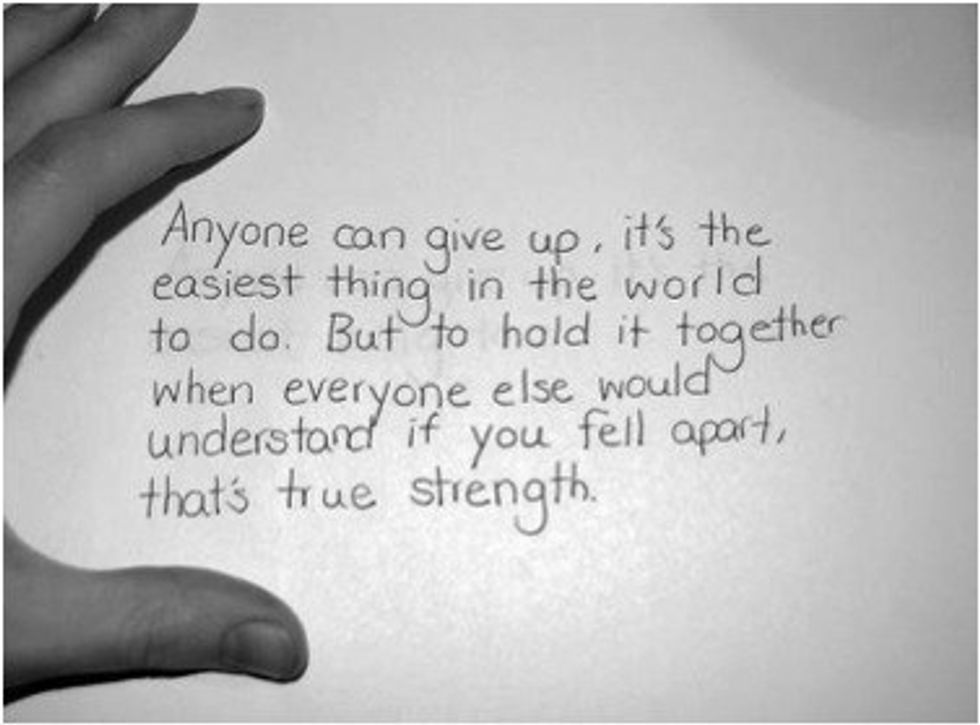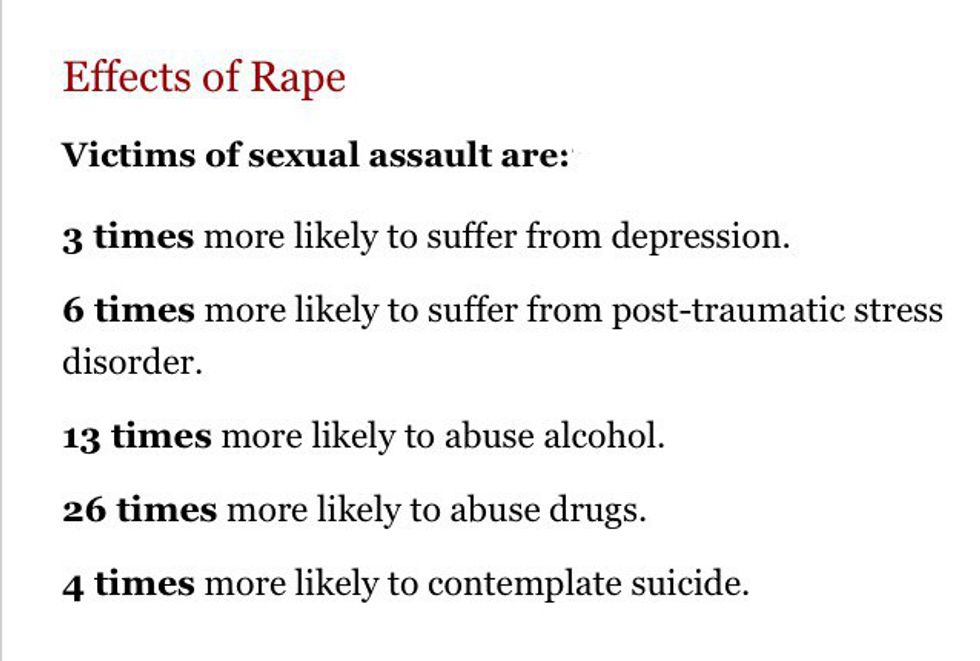Every 107 seconds, someone in our country is sexually assaulted.
Sexual assault awareness is about challenging attitudes and behaviors which have resulted in a culture that promotes sexual violence and disrespect of people's bodies and emotions. When we share about sexual assault awareness, we can cure people's attitudes and behaviors. That is what I hope to accomplish through my advocacy, so I decided to make a list of things everyone should know about sexual assault.
1. One out of five women have been or will be a victim to sexual assault. Think about it. Go into any group setting, whether it be at work, school, church or even in your own home, and pick out five women. Statistically, one of the five will be raped. In the military, the numbers are even more horrifying with one out of three women becoming victims to sexual assault.
2. Fifteen percent of rape cases involve children under age 12. According to RAINN, for 80 percent of juvenile victims, the perpetrator was a parent. Six percent were other relatives. Four percent were unmarried partners of a parent. Five percent were "other" (from siblings to strangers). This is sickening. There is a special place in hell for rapists, especially the ones of this variety.
3. Men get raped, too. Too often, people make rape an issue about men not being able to respect women. The truth is, this is a problem for both men and women. One out of 31 men have experienced attempted or completed rape. Unfortunately, I am led to believe that this number is probably higher considering that it is much less acceptable in our culture for men to talk about being raped. Rape culture says that they are somehow less of a man for being a victim of a violent crime. This is far removed from the truth, which leads me to my next point.
4. Sexual assault survivors are strong people. We get out of bed and go out to face the now very scary and unsafe world. We go to counseling and talk about the very personal details of the assault and the inner workings of our traumatized mind. We look at the ugliest parts of the things we have experienced because we can't stop them from popping up in our mind. All of this is happening while we balance the different facets of our life: work; school; hobbies; friends; family; and romantic relationships. That is true strength, my friends.
5. Most, if not all, sexual assault survivors will have side effects. Though they vary from person to person, these are the most common among survivors:
This is not a comprehensive list, because there is no cookie-cutter side effects or solution. We are all unique and have different ways of reacting to and coping with trauma.
6. Sexual assault is never the victim's fault! No exceptions to this rule. It doesn't matter what he/she did before or after they were assaulted. They could have been drunk, high, naked, walking through a dark alley, you name it, and it is still not their fault. They could have said no, but when their attacker continued without consent they pretended to like it so it would be over. They could have been frozen in fear and not said a word. The absence of a "no" does not mean "yes." There is no situation where the consequence of an action should be rape. Check out this video on consent:
7. Sexual assault can occur in romantic relationships. Many people have this belief that when you are in a relationship, you do things you don't want to do to please your partner. This is true about washing the dishes, or taking the dog for a walk. This is not the case when we are talking about sex. If both parties are not in agreement, it's no longer sex. You don't owe your partner sex and he or she doesn't own you! It's a privilege and any healthy person wouldn't want to have sex unless it was consensual. Just because you are having sex on the regular doesn't mean you want to have sex every time he or she wants to have sex, and if they force it on you, it's no longer sex. It's rape.
8. There are resources available to help sexual assault survivors. Recovery is possible. I am a huge advocate for talking about your experience. It will liberate you when you are ready. Don't let what happened to you define who you are. You are worthy of so much more. Here are some resources that you can utilize in the recovery process, as well as some information about sexual assault advocacy. Please do your part in advocating for sexual assault awareness by sharing this post and checking out the websites listed below:
Resources, Recovery, and Advocacy
RAINN
The Rape, Abuse, and Incest National Network. Recognized as the nation’s largest anti-sexual violence organizations. Provides information, support, resources, and help to get you through. Carries out programs to prevent sexual violence, help victims and ensure that rapists are brought to justice.
RAINN National Sexual Assault Hotline
1-800-656-HOPE (4673) Available 24/7.
Provides victims of sexual assault with free, confidential services 24/7.
Men Against Rape
“Creating Cultures Free from Violence.” Its mission is to mobilize men and use their political and cultural strength to create a culture free from violence, particularly men’s violence against women.
National Sexual Violence Resource Center
The NSVRC’s Mission is to provide leadership in preventing and responding to sexual violence through collaboration, sharing and creating resources, and promoting research.
Resources: Statistics from this article can be found on https://rainn.org/statistics.

